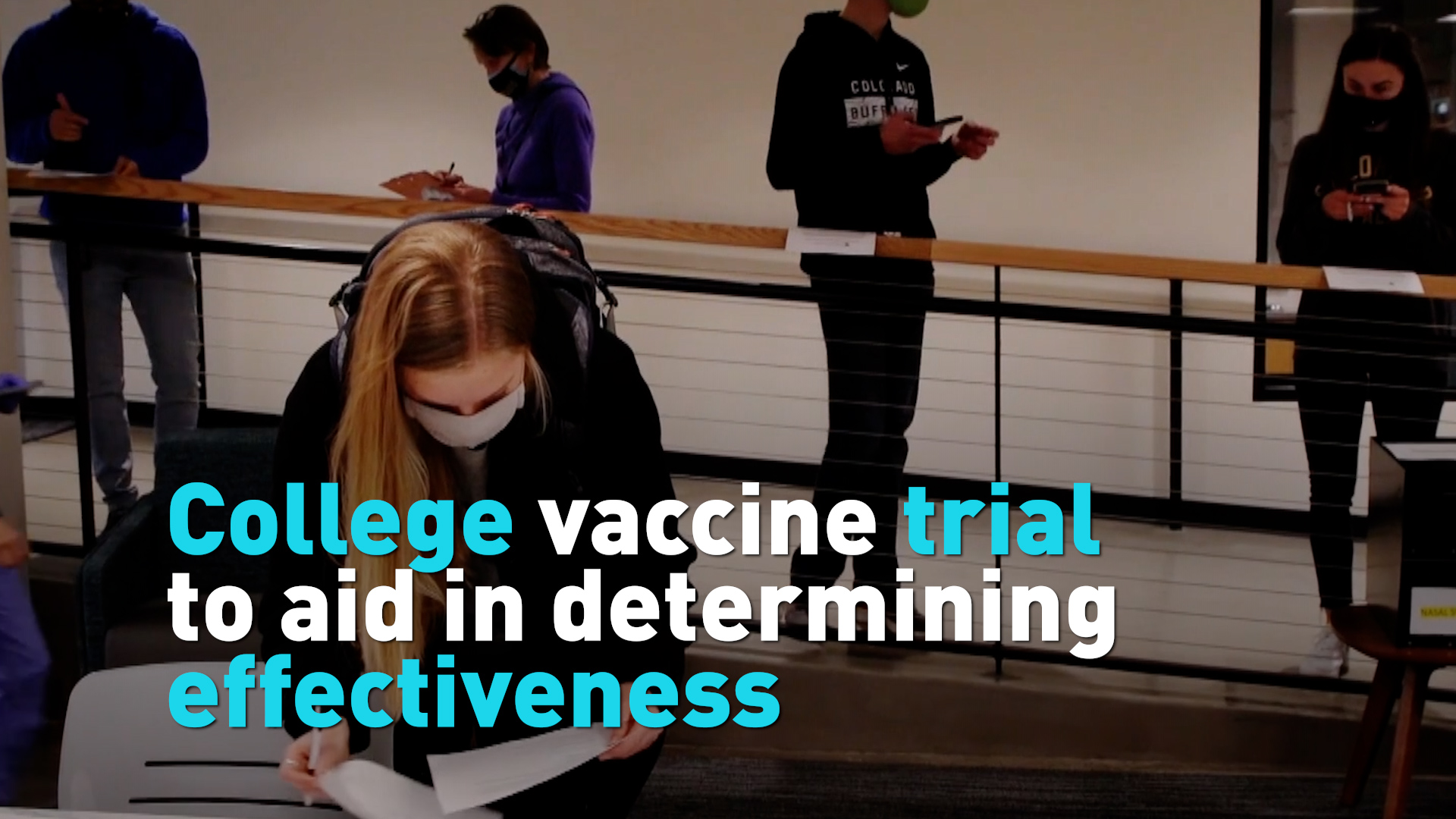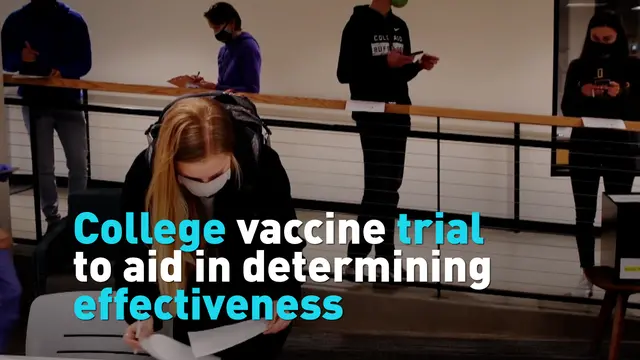02:34

It’s a key question scientists hope to answer in a new U.S. trial: Do COVID-19 vaccines prevent transmission of the disease? The results of the trial could affect the kinds of precaution we’ll need to take against infections heading into the future. CGTN’s Hendrik Sybrandy reports.
At the University of Colorado Boulder, students are administered the Moderna COVID-19 vaccine. It’s been a difficult school year for many of them.
"We don’t really have any time to breathe and there’s just kind of a big gloomy cloud over everyone," said C.U. Boulder student Chase Willie/ Student.
They’re here to help lift that cloud. They’re among the 12,000 students, ages 18 to 26, from 21 universities who are enrolled in a national study called PreventCOVIDU that's aimed at determining whether the vaccine can prevent both infection and transmission of the virus.
Chris DeSouza is co-principal investigator for this school’s portion of the federally-funded trial. The Moderna vaccine has already been shown to be highly effective at protecting people from severe disease. It’s not clear whether it protects those around them.
"What does that mean on a campus if 80 percent of the student population are vaccinated, if 90 percent are vaccinated," DeSouza said.
Half the students will be vaccinated right away, the other half four months later. Volunteers will be asked to swab their noses daily, get tested for the virus twice weekly and report any symptoms.
Volunteers will then be asked to swab their nose—typically the site of first infection—every day, get tested twice weekly via CU Boulder’s on-campus saliva monitoring program and complete daily questionnaires about symptoms via an app on their phone.
"If a student gets infected and is shedding virus, we will study close contacts of them, essentially do contact tracing and look at how many of their close contacts get infected," said Co-Principal Investigator Dr. Brian Stauffer.
Schools are good settings for these kind of studies because students live in close quarters and often have no symptoms when they’re infected.
The trial could help universities as they plan for a return to normal campus life this fall. It has implications for the broader society as well.
"If you get a vaccine and it prevents you from getting severe disease but makes you an asymptomatic shedder it’s still going to be very important for people to wear masks and socially distance," Stauffer added.
Olivia Parsons is among the 700 students at C.U. Boulder taking part in the study.
"I think we took for granted so much how much freedom we had, prior to the pandemic, with just not having to worry about the capacity of a restaurant and hugging and embracing your friends and your loved ones," Parsons said.
The information she and others will provide could help determine how much of that pre-pandemic life will be possible. Results are expected sometime later this year.
Check out
The China Report
, our new weekly newsletter.Subscribe here!
 简体中文
简体中文





